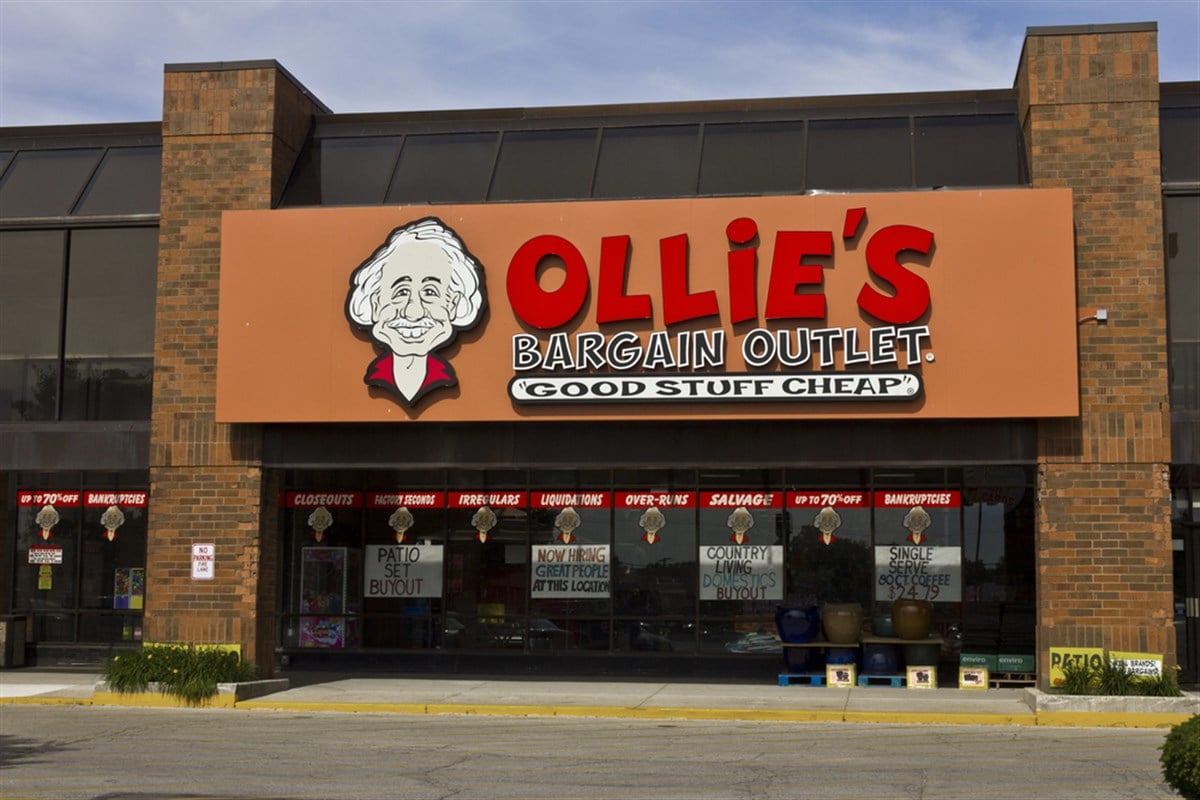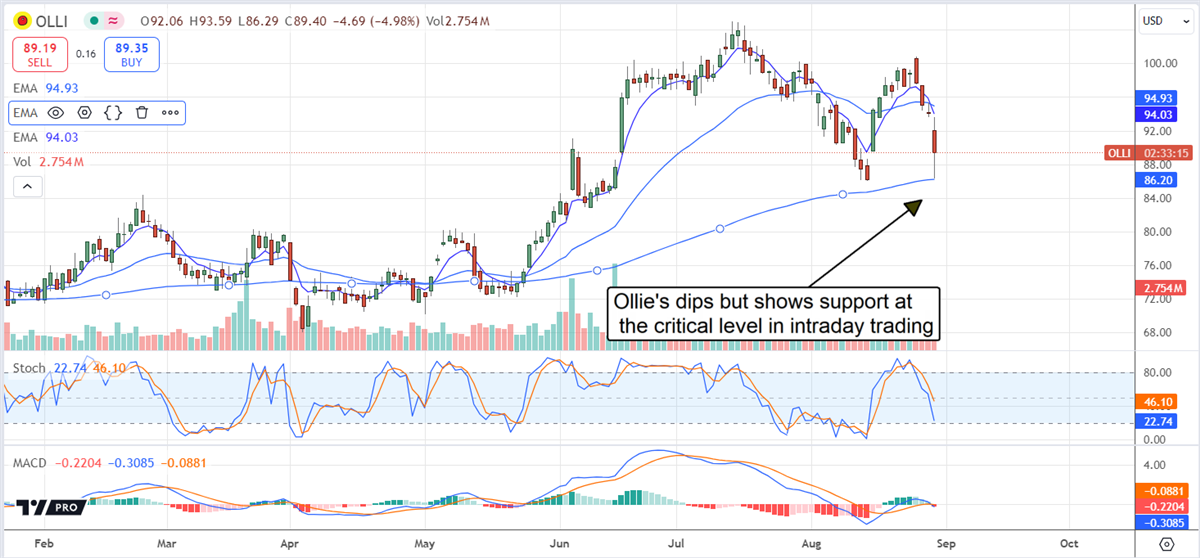
Investors looking to buy into a high-quality growth name should cheer the dip in Ollie’s Bargain Outlet (NASDAQ: OLLI) share prices caused by the Q2 earnings release. The news is mixed with weakness on the bottom line, but that is the worst that can be said. All other details point to industry-leading growth, robust cash flow, balance sheet health, and ample capital returns.
The takeaway is that the price reduction is an attractive discount on a buy-and-hold name that delivers value for its investors and has tailwinds to drive business. Consumers turn more and more to bargains, as seen in results across the board for off-price retailers, and that trend is unlikely to change soon.
Why Ollie’s Profitable Growth Is Set to Continue
Ollie’s Bargain Outlet produced profitable growth in Q2 and is forecasting it to continue. The company produced $578.4 million in net revenue for the quarter, up nearly 12.5% compared to last year and doubling the growth of industry leader TJX Companies (NYSE: TJX). Growth is driven by an increasing store count and comp-store gains, outpacing the consensus by more than 300 basis points as shoppers flocked to the stores.
Margin news is why the stock price fell. The operating margin improved by thirty basis points, with declining SG&A offsetting a product-mix shift, but it was less than expected. The net result is $0.78 in adjusted earnings, up 16.2% compared to last year but a penny shy of consensus. The penny miss isn’t much but compounded by the top-line strength and is echoed in the guidance.
Ollie’s raised guidance for revenue and earnings, with revenue expected to be above the consensus at the range’s low end, but the EPS outlook is tepid relative to the consensus. Management expects earnings to run near $3.26 this year, compared to the consensus of $3.28, but the guide may be cautious. With inflation pressuring consumers, Ollie’s will likely continue to deepen penetration of existing markets while building new stores. The company targets a 10% store count increase this year and more than 100% growth over the long term.
Ollie’s Doesn’t Only Sell Value; It Builds It
Ollie’s has the right idea with its off-price approach; selling to the masses produces the cash flow that allows you to dine with the classes, and it shares the flow with investors. Cash use in Q2 was negative due to CAPEX and capital returns but solid annually, capable of sustaining the fortress balance sheet and share repurchases. Balance sheet highlights at the end of Q2 include a doubling of cash compared to the prior year, increased inventory, virtually no debt, and increased equity despite robust share repurchases.
Share repurchases shaved 5% off the stock price over the last quarter; equity is up 12%, accelerating from last year’s 7% gain. Ollie’s doesn't pay dividends, but it doesn’t need to do that with that kind of return. Share buybacks are expected to continue at the same robust pace through year’s end and into 2025 because of the financial health and the $54 million left on the authorization.
Sell-Side Support for Ollie’s Bargain Outlet Is Strong
The sell-side support for Ollie’s Bargain Outlet is strong, with 13 analysts rating it a Buy, raising price targets in 2024, and the institutional activity accumulating shares. The analysts' activity leading into the report includes numerous price target updates and upgrades; institutions have bought the stock on balance, outpacing sellers nearly 2-to-1 on a dollar basis over the past twelve months. The takeaway is that Ollie’s uptrend is driven by sell-side activity and will likely continue. The analysts view it as a bargain, trading below the lowest estimate tracked by MarketBeat, with the potential for a 15% upside at the consensus.
Ollie’s price action fell following the release but aligns with the uptrend, showing support at the 150-day EMA. Support at this level is likely strong because it is consistent with the price gap formed earlier this year. If not, Ollie’s shares could fall to $80 or lower, which is unexpected. What is expected is for the sell-side to utilize the price dip, which should lead to a buy signal and a retest of resistance at $100 by the end of the year.














